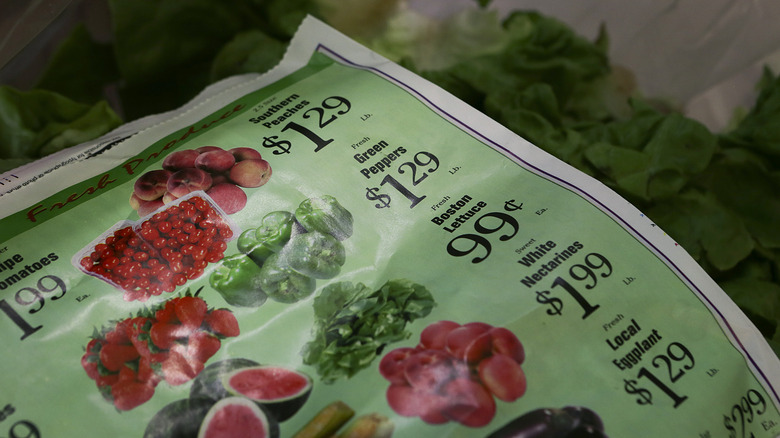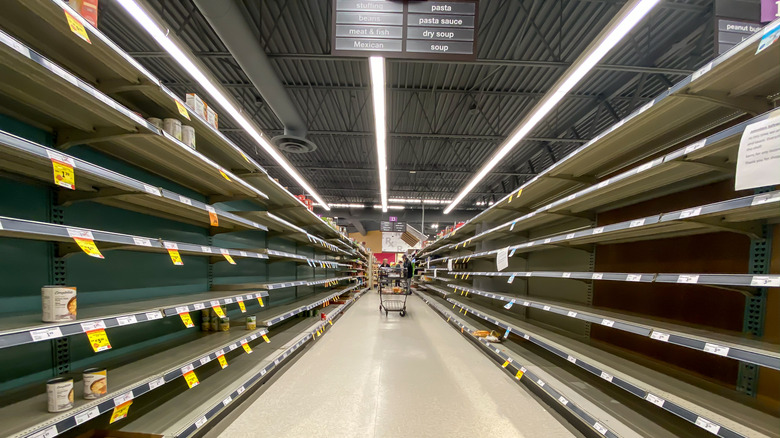The Real Reason You're Seeing Fewer Deals At The Grocery Store
If you've been to the grocery store lately, there's a good chance you've already noticed that your favorite products haven't gone on sale in quite a while. And even the weekly circulars are a bit more scarce on deals than normal — no matter which retailers you shop at.
The unfortunate news, as CNN Business reports, is that it's probably going to be like that for the foreseeable future. Due to the global supply chain crisis exacerbated by the pandemic, food distributors around the country are experiencing major shortages for name-brand items. That not only means fewer discounts for popular products, but also more purchase limits on those items, as retailers try to curb the demand and keep things in stock. "Some suppliers are also telling grocers to cancel their promotions of these items and more over the holidays so products won't disappear from store shelves as quickly," says CNN Business. They also report that brands are focusing on their core or signature items for the time being, so their more niche products are going to be scarce.
"If you're a fan of Ben & Jerry's popular Phish Food, you shouldn't have a problem," CNN Business further explained, "but the company's less-well known Cold Brew Caramel Latte might be harder to find." This may seem like a nightmare for customers who are on a budget as well, but it's just as much of a problem for the grocery stores, who are struggling to secure inventory on a consistent basis (via Insider). "It's like whack-a-mole," Albertsons CEO Vivek Sankaran shared. "On any given day, something is out of stock in the store."
Grocery stores haven't recovered from the pandemic yet
At the height of the pandemic, it was common to see grocery store shelves entirely cleared out. But while food hoarding isn't so much of an issue now, according to CNN Business, most retailers still haven't recovered fully from those shortages. Before the pandemic, the product out-of-stock rate was 7-10%, but more than a year later, it hasn't yet returned to that, and is still sitting at a whopping 15-18%.
It's reached a point that even brands themselves have no choice but to limit distribution. Kellogg, for example, despite being a leader in cereal production, had to tell their retailers to pull all future promotions for Rice Krispies and Corn Pops until the end of the year "to allow for recovery," says CNN Business. Excluding the brand's two bestsellers from store sales isn't just because there isn't enough Kellogg cereal to go around. The effect is also due to the supply chain crisis affecting more than raw materials but also "constraints in capacity and packaging materials and labor pressure," CNN Business explains. After all, you can't sell cereal without cereal boxes.
At this rate, it might be time to start entertaining lesser-known brands. Otherwise, you'll have to settle for paying full price every time you shop.

